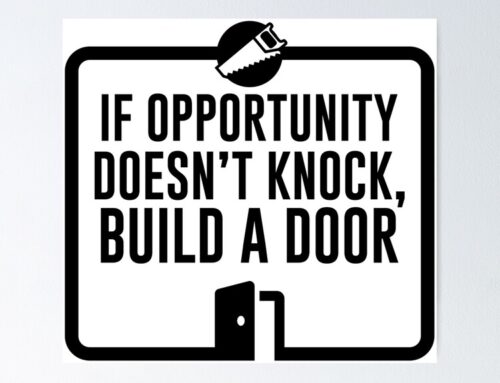Leadership Mistakes to Avoid as an Entrepreneur
An entrepreneur is bound to make several mistakes throughout his or her journey. However, the lessons a leader can learn from a mistake are often invaluable. We make plenty of bad decisions – decisions related to hiring, investing in wrong projects, overspending, taking on more work than we can handle. The list is long. However, once a mistake is made, we should ensure that we take every step necessary so that the mistake isn’t repeated.
Here are some mistakes that can be avoided –
Failure to Identify or Acknowledge the mistake:
No one likes being wrong. I often come across entrepreneurs that are so fixated in their ways/thoughts that they don’t even acknowledge that an incorrect decision has been made. Its only after a significantly negative outcome that they realize that a mistake was being made. Acknowledging the mistake can prevent cascading, and often disastrous outcomes at the get-go. Catch the problem when you see it and nip it in the bud.
Don’t Get Married to Your Plans:
Whether you’re starting a business or implementing a new process, decisions or plans are made based on the probability of an outcome. Most, are convinced their idea is going to work before they decide to act on it, which makes sense. But, one must realize that convictions can work negatively as well. As a leader you must be flexible. If a decision that has been made is not working, move to Plan B or Plan C. Don’t get stuck trying to prove to yourself that you made the right decision. – I cannot recall speaking to an entrepreneur that has told me that his/her journey has played out exactly as planned. Plans change, if something isn’t working, drop it! Switch to what you think will work & figure out what might be the best use of your time and skill set.
Time Spent Vs Value Created:
The time spent vs value created ratio is one that we, at SILA, have begun to track very carefully off late. This is a costly mistake that I have often made in the past to start out, pick an idea or process that will use time efficiently. We often forget that we only have a limited number of hours in a day. It is imperative that a leader spends his time solving problems and taking decisions that maximizes value creation. For a businessman – measure the Time Spent vs the Money Earned ratio, for a scientist – the Time spent vs the Probability of Innovation ratio, for a Non-Profit Organization – the Time Spent vs the Level of Social Impact Ratio and so on.
Beware of the HiPPO Culture:
HiPPO = Highest Paid Person’s Opinion. The HiPPO culture emphasizes forming a culture, where the highest paid person’s opinion does not necessarily influence every decision made in an organization. A good leader must ensure that ideas and opinions from stakeholders across the value chain are considered before making decisions. Considering a diverse set of opinions before making an informed decision is imperative. For example, in an operationally driven services business like ours the most junior person in the room often has a better pulse of what the real problem is on ground. It would be detrimental to our business if we only followed the HiPPO. The HiPPO can veto a decision when necessary, but it should not become the rule.
Don’t Become Indispensable:
All leaders enjoy the power of decision making, I often make that mistake too. However, one must realize that a company cannot scale without making the leaders or senior management dispensable. Do all you can to become dispensable. At some point, decision making needs to be driven by processes & systems, not by the management. This might not be possible for an early stage startup; however, the company will never grow out of being a startup unless the leaders become indispensable. At SILA, we tell our managers that they will grow only when they become dispensable. Which means that they need to, a) Train their subordinate to do their job b) Set processes & a decision-making protocol that allows the senior manager to go on a month-long vacation without day to day work being affected.
Rewarding Mediocrity is Dangerous:
If your goal is to create value in the most efficient manner, you must try not to Reward Mediocrity. If a resource that you have hired is not performing and you do not see the potential for them to improve, let them go. If you have set a mediocre process that has worked in the short run, but will fail at scale, change it. If an employee isn’t performing in the role he/she was hired for, we should re-allocate the employee to another department only because we didn’t have the heart to want to fire them! What we don’t realize is that in the bargain mediocrity gets into the culture of the organization. Teams think that they would never get fired even if they underperformed, which made people lazy. All the ideas come from the promoters, not from the teams. This hurts the output, not allowing us to become dispensable. So be nice, but not too nice.
ARTICLE BY: Rushabh Vora – Co Founder and Director, SILA

206-391-5682
i2i@i2idirectmarketing.com
www.i2idirectmarketing.com
“…all deliveries GPS tracked…”





